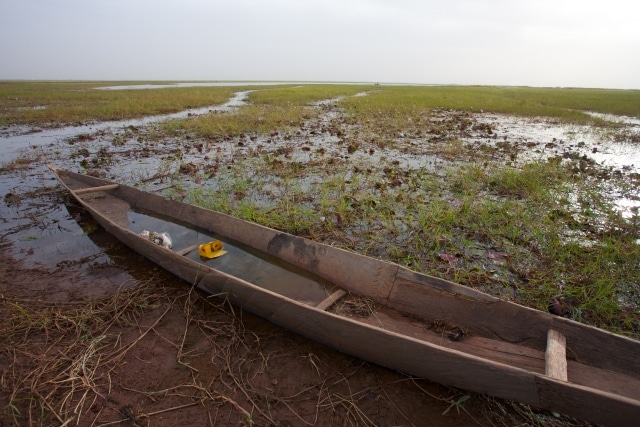Oil giant Shell was warned by its own staff that the Trans Niger Pipeline had a “risk and likelihood of rupture” years before two spills in 2008 spewed as much as 500,000 barrels of oil in the town of Bodo in Southern Nigeria.
The BBC reported these revelations after viewing internal company documents submitted to a court in London, where some 15,000 Nigerians are suing Shell over a separate spill from the same pipeline.
The documents uncovered in the London court may lead to a much bigger penalty against the company for the 2008 spills. A court in the Hague found Shell only partly responsible for those spills after four farmers sued the company in 2012. Shell’s lawyers argued that the company had taken the necessary precautions, including installing leak detection systems, prior to the rupturing of the pipeline, and blamed acts of sabotage and attempted thefts for the spills.
But internal emails, letters, and reports show not only that no leak detection system was ever installed, according to the BBC, but also that Shell employees were warning management of the pipeline’s decrepit state and the risk it posed to the surrounding communities. One study conducted by Shell’s Nigeria business and a consulting arm as far back as 2000 had concluded that the pipeline’s life expectancy was “more or less non-existent or short, while some sections contain major risk and hazard.”
In 2006, the managing director of Shell’s Nigeria business wrote in a letter that “There is a risk and likelihood of rupture on this pipeline at any time, which if it happens, could have serious consequences for the safety of life, the environment and the nation’s economy.”
A spokesperson for Amnesty International told Newsweek, “It is incredibly lucky for the Nigerian farmers that the British case went through, otherwise they would not have seen this.”
A report issued by Amnesty International in 2011 found that the lives of the 69,000 people living in Bodo, a small town in Ogoniland in the Niger Delta, have been deeply disrupted by the spills:
Those who used to rely on fishing for a living have lost their incomes and livelihoods. Farmers say their harvests are smaller than before. Overall, people in Bodo are now much less able to grow their own food or catch fish. With their livelihoods destroyed and food prices rising, many can’t afford to buy nutritious food.
While the longterm health impacts of exposure to petroleum hydrocarbons aren’t well understood, the Amnesty report summarizes the risks: “Dermal exposure can lead to skin redness, oedema, dermatitis, rashes and blisters; inhalation exposure can lead to red, watery and itchy eyes, coughing, throat irritation, shortness of breath, headache and confusion; and ingestion of hydrocarbons can lead to nausea and diarrhoea.”
A report by the United Nations Environment Programme completed in 2011 concluded that the Nigerian government and oil companies should commit as much as $1 billion to clean up the oil pollution in Ogoniland, saying it would require the “world’s most wide-ranging and long term clean-up exercise ever undertaken.”
Though progress on the clean-up efforts has been slow, the Nigerian federal government has created a “Consultative Committee” to perform the necessary environmental restoration outlined in the UNEP report. However, Environmental Rights Action/Friends of the Earth Nigeria Executive Director Ojo Godwin says that Shell has “hijacked” the clean-up process.
Image Credit: Watchtheworld / Shutterstock.com
Subscribe to our newsletter
Stay up to date with DeSmog news and alerts






